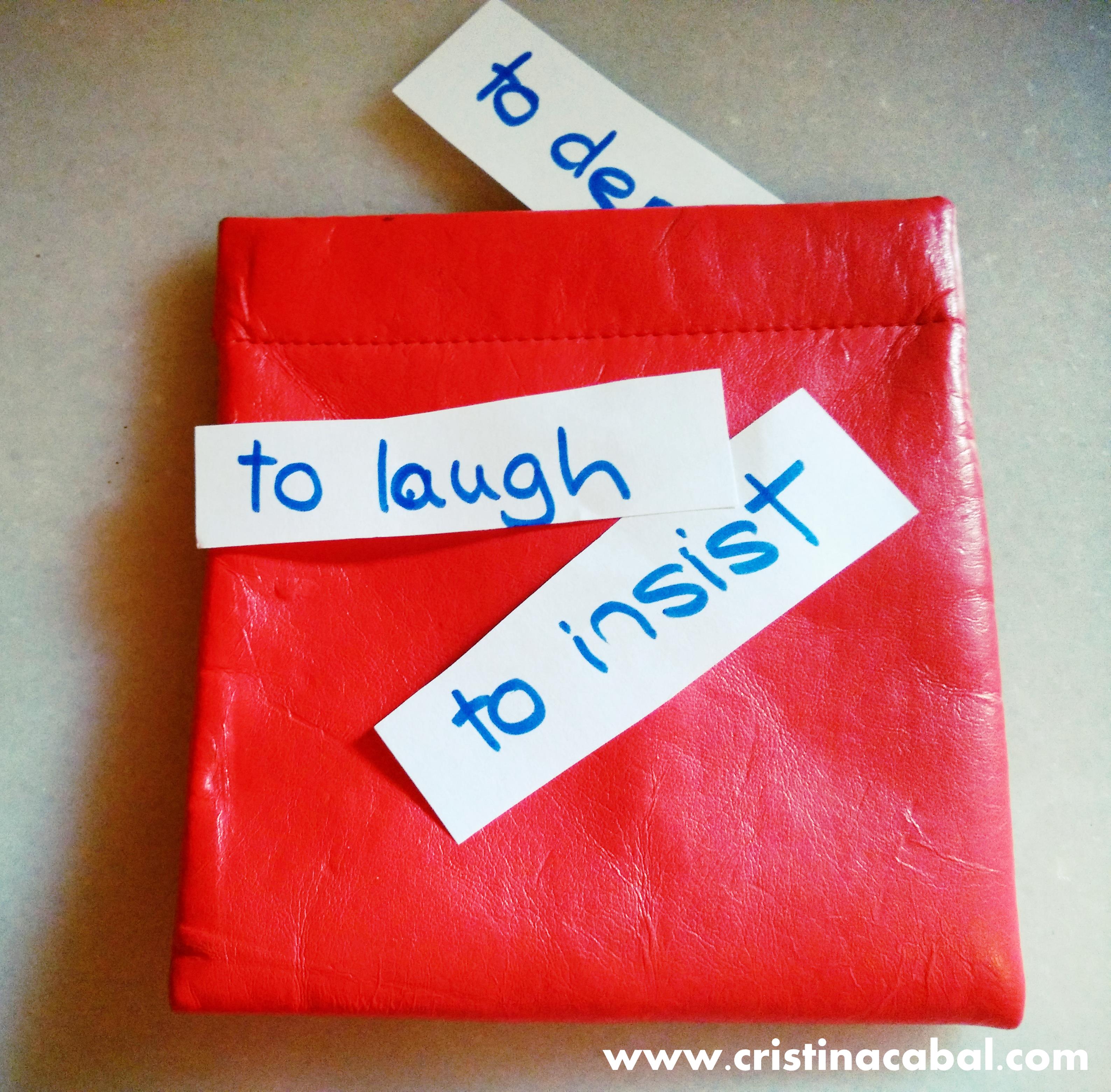After almost eight years posting ( I had another blog before this one) I have to say that I am absolutely convinced that if it were not for my blog,I wouldn’t be able to find and remember half the activities that I do in my class. Don’t misunderstand me !!! I’m not implying by any means that I’m sort of disorganised or forgetful; a teacher should never fall into this category, but the truth is that this blog has helped me tons to have all my stuff organised. That must have been the reason that prompted me to start writing… but to be honest, I cannot remember! :).
Two activities that I did yesterday with my students and that I don’t want to forget are
1. A small warm-up to introduce Used To
2. A fun nice short writing game that requires no preparation
1. Introducing Used To. The picture below shows what I wrote on the whiteboard. I made sure I gave examples of past actions -in the diagram the font is in black- and past states -in blue. (Remember: We use ‘used to’ for something that happened regularly in the past but no longer happens or for something that was true but no longer is).
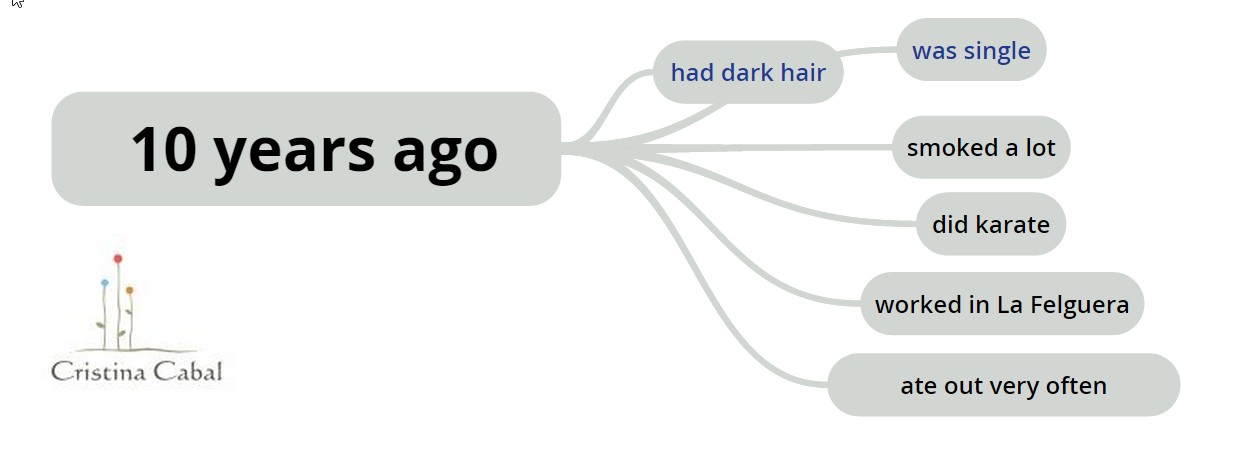
At this stage, a good performance makes all the difference.
Students pay more attention when you dramatise or introduce the idea in a nice way. Let’s see two examples. Which do you think will make the student pay more attention?
1. OK, Today, I am going to explain Used to, It is used to…. and here are some examples… Do you understand? Any questions?
2. Ok, folks !! That’s me 10 years ago!! Look at my hair now!! What colour is it? Do you think it suits me?? Thanks so much !! You’re so sweet! Now I have fair hair but 10 years ago, I used to have dark hair. What about you? Has anybody changed their hairstyle?? Yes, teacher, I had dark hair too and now I have red hair!! Ok ! María, so in English, you can say! I used to have dark hair but now my hair is red.
The second option works much better, trust me on this one!
2. WRITING GAME: I HAVE RETIRED
Target language : Used To to describe past habits or states, contrasted with the present
Preparation: none
Level : B1/B2
Time: about 15 minutes
Procedure:
Setting the context. Tell students they have to imagine they are 70 and they are retired. They are happier in retirement than when they were working but there are some things that they still miss.
Step 1. Students in pairs or in threes choose the job they used to have.
Step 2. Students will need to produce four sentences using Used To , giving clues for the other groups to guess their job.
- All the sentences must contain ” Used to” in the positive or the negative
- the first sentence will contain the clue most difficult to guess
- the last sentence will contain the easiest clue
- The first sentence will be awarded 4 points and the last one 1 point
Step 3. Each group will name a spokesperson who will read out the clues. It’s important ,at this stage, to ask students to speak up and clearly . Some rules:
- The spokesperson will read the first sentence and the other groups will raise a hand if they think they know the answer.
- Only one guess is allowed for each clue
- If the answer is correct, they will be awarded the four points, if it is not,the second clue will be read for three points.
Example
- 4 points . I used to work with a lot of people
- 3 points. I used to work after “work”
- 2 points. I used to use my voice a lot
- 1 point . I used to work with children
How many clues did you need to hear?? Yes, the answer is TEACHER
3. LEARNING WITH SONGS. Is there a best way to learn?
This is a beautiful song by the Newcastle songwriter James Morrison and it is called Once When I was Little . I used some time ago to talk about Childhood Memories and to revise Used To. I hope you like it. I love it!
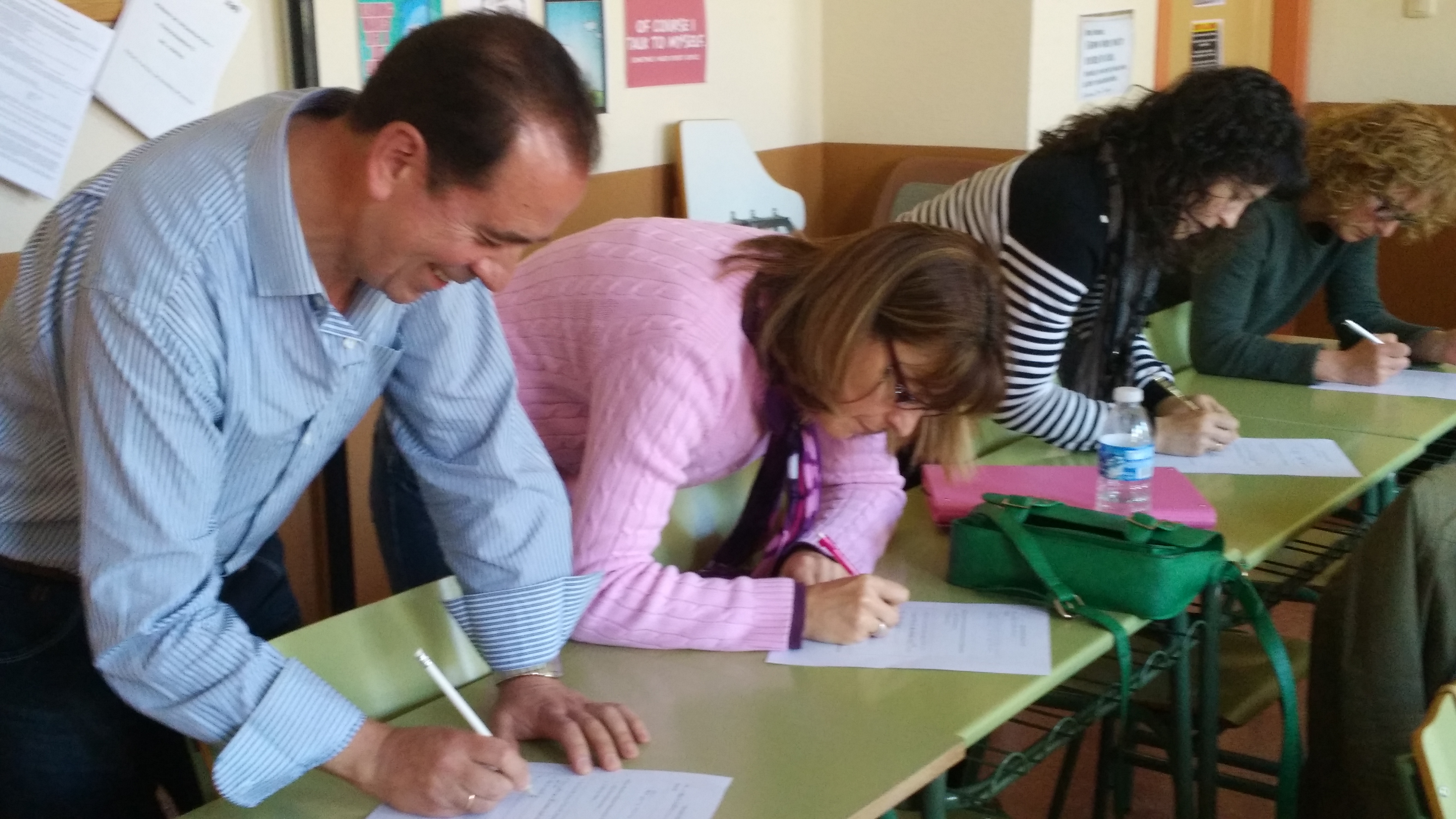

 and that you are their mother/father (more giggles). They have a very important date with the girl/boy of their dreams and they really want to impress their date; for this reason, they need to borrow your beautiful back sports car, which you are reluctant to lend as the student has just got his driving licence.
and that you are their mother/father (more giggles). They have a very important date with the girl/boy of their dreams and they really want to impress their date; for this reason, they need to borrow your beautiful back sports car, which you are reluctant to lend as the student has just got his driving licence. Example: what happens if you are in a supermarket waiting to pay and you change queues? The queue you were in before will move faster.
Example: what happens if you are in a supermarket waiting to pay and you change queues? The queue you were in before will move faster.

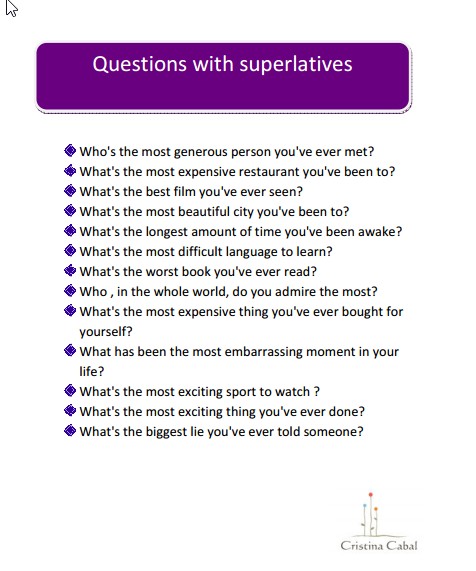
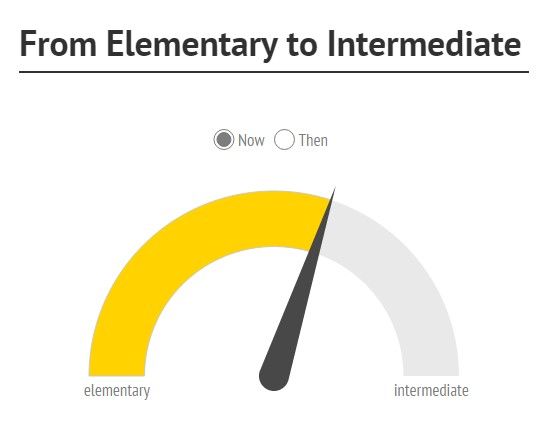 students move from an Elementary Level to an Intermediate one takes time and practice. One does not acquire the level in one day, you need to go step by step and you’ll need to climb all the stairs to be successful, there is no lift here.
students move from an Elementary Level to an Intermediate one takes time and practice. One does not acquire the level in one day, you need to go step by step and you’ll need to climb all the stairs to be successful, there is no lift here.
